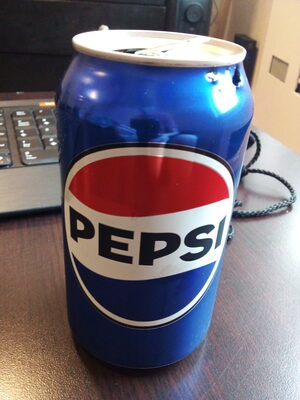
Barcode: 069000004258
Pepsi Cola
HALAL
📝 Reason: Pepsi Cola does not contain any known Haram ingredients or Haram Ecodes. However, ‘Natural flavor’ is problematic as it may contain alcohol or animal-derived substances, and the source details or certification are not given. According to Islamic jurisprudence (Quran 5:3), any ambiguity in ingredient origin requires Muslims to avoid consumption until clear Halal status is proven (see also IFANCA, USA, GuidanceHalal.com).
🏷️ Category: Beverages And Beverages Preparations, Beverages, Carbonated Drinks, Sodas, Colas, Cola With Sugar, Sweetened Beverages, Cola With Sugar And Natural Flavour
📄 Certificates: Halal, Vegetarisch, Vegan
Ingredients:
Details
Understanding the Halal Status of Pepsi Cola
Pepsi Cola is one of the most popular carbonated beverages around the globe. However, for many Muslims, understanding whether a product is Halal is of utmost importance. This post delves into the Halal status of Pepsi Cola, analyzing its ingredients and E-numbers to provide clarity for consumers.
Halal Certification Overview
Pepsi Cola is labeled as HALAL, which indicates it is permissible for Muslims to consume. This assurance is crucial as it directly addresses concerns regarding the presence of Haram (forbidden) ingredients in the drink. However, while Pepsi Cola does not openly list any Haram components, certain ingredients, particularly ‘Natural flavor’, can be problematic due to their ambiguous nature.
Ingredient Breakdown
To fully understand the Halal status of Pepsi Cola, let’s examine its ingredients in detail:
- Carbonated Water: Plain water infused with carbon dioxide. This ingredient is universally acceptable and does not come from any animal or Haram origin. Source
- Sugars (sugar/glucose-fructose): Derived from plants like sugarcane or sugar beet, these sugars have no animal components. Although processed sugars can sometimes involve bone char, this is not common globally and is generally accepted as Halal. Source
- Phosphoric Acid: This ingredient is synthesized industrially and is not derived from animal sources. It is considered Halal for use in soft drinks. Source
- Caffeine: A plant-derived stimulant found in coffee beans and tea leaves, caffeine is Halal and safe for consumption. Source
- Citric Acid: Typically produced from citrus fruits or fermentation of glucose, citric acid is regarded as Halal. Source
- Caramel: Caramel coloring is produced through the heat processing of sugars and is generally considered Halal. Its E-code versions (E150a-d) are recognized as Halal as well. Source
- Natural Flavor: This ingredient poses the most concern as natural flavors can be derived from both plant and animal sources, and their specific source is not disclosed. Thus, the Halal status here is doubtful according to Islamic jurisprudence (Quran 5:3). Consumers are advised to avoid such ambiguity until further clarification is provided. Source
Conclusion: Is Pepsi Cola Safe for Muslims?
Considering the ingredients listed above, Pepsi Cola holds a diverse range of components; however, the uncertainty surrounding ‘Natural flavor’ introduces a gray area. For Muslims, the safest practice is to refrain from consuming products with unclear ingredient origins, as advised by organizations like IFANCA and GuidanceHalal. Pepsi Cola is certified Halal, but due to the concerning natural flavor, it is essential for consumers to remain informed and choose wisely based on their beliefs.
In conclusion, while Pepsi Cola is generally regarded as Halal, be cautious and check for further information, especially concerning the source of Natural flavors. Always look for a credible Halal certification to ensure absolute compliance with Islamic dietary laws.
